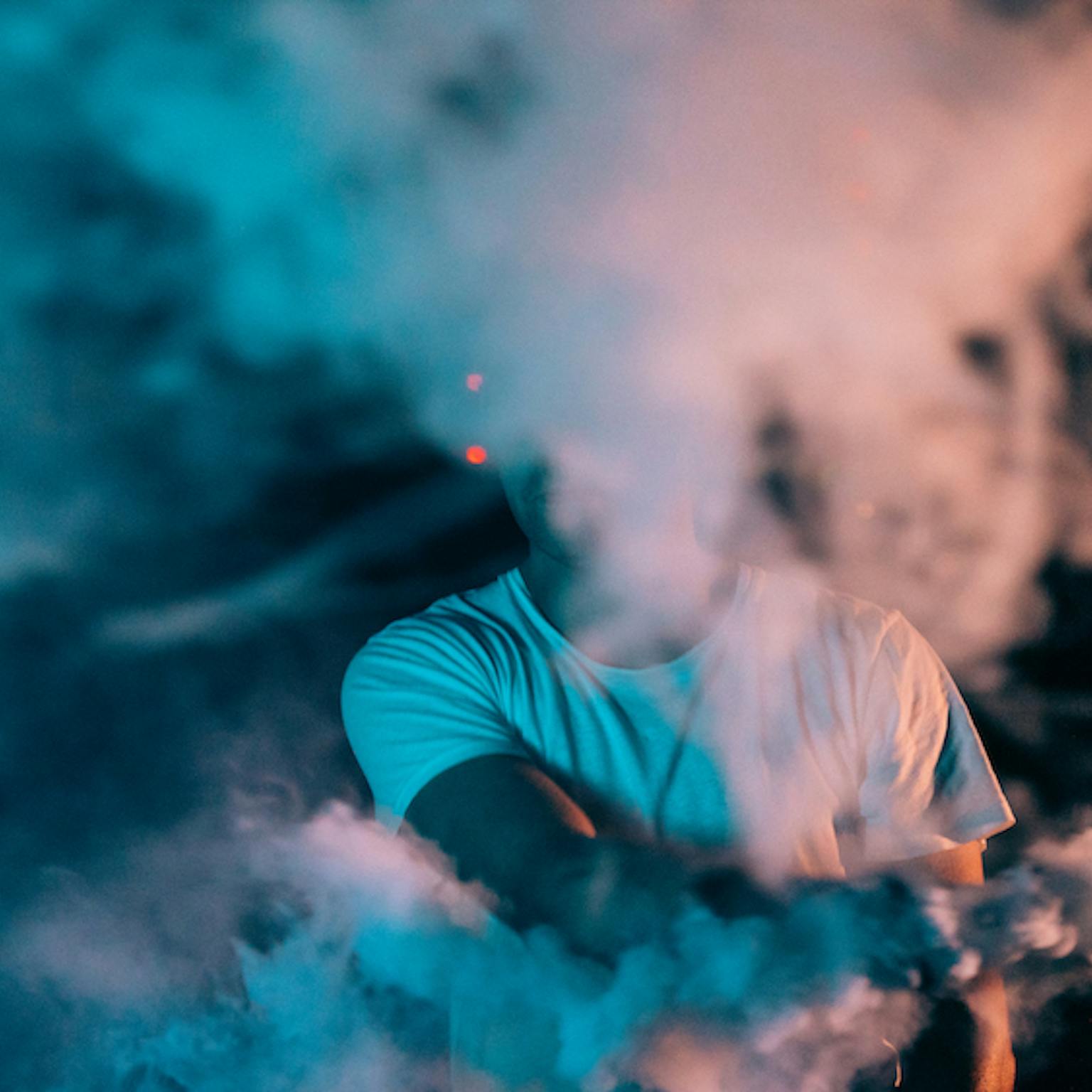The Echio Quiz with Principleasure
<iframe style="margin-top:2.5rem;" width="315" height="560" src="https://www.youtube.com/embed/XAI3kmDsius" title="YouTube video player" frameborder="0" allow="accelerometer; autoplay; clipboard-write; encrypted-media; gyroscope; picture-in-picture; web-share" allowfullscreen></iframe>
How did you learn music, and did you have mentors?
I'm a self-taught guitarist and keyboard player—not a very good one, but, I think sufficient enough where I don’t need to bring in other players for my music. Everything I learned, I learned by myself. It’s all self-taught, pre-dating YouTube, really. When I was at high school, we had these guitar tablature books with Iron Maiden, Metallica, and Guns N' Roses songs, and you’d play the guitar parts along to the cassette, and that’s how we learned guitar. I got a keyboard for my 16th birthday—this cheap Yamaha PSR thing—and I’d just pick up and start playing these piano house tracks that were big at the time in the late ‘90s. I didn’t have a mentor, but there was one teacher, Mr. Totten, who noticed my interest and encouraged me. He was the only teacher that ever really encouraged me to do anything, and I won’t forget that.
Tell us about a key feedback you received during your career and from whom.
For me, I think it was probably getting played on BBC Radio 1, and that would have been either Pete Tong or a track on one of the specialist shows. Back then, being played on Radio 1 was everything, especially during Friday or Saturday night, and if you got an email from a producer at Radio 1, it meant your song would be played during prime time. That feedback from drive-time radio was really the very early pinnacle for me, giving a sense of validation, and it was enough to propel your track beyond the club world.
What is good music feedback in your opinion?
It’s incredibly frustrating to receive “downloading four” or “downloaded three out of five” feedback. That kind of feedback is lazy, and I think if you’re feeling something, it’s good to give feedback. If you’re qualified to give production feedback, it’s important to be constructive about arrangement and production, especially if it’s a club record, as that feedback can help artists understand why it may or may not work in a particular context.
What feedback would you give to your first release (please name the release)?
Under Principleasure, my first release was the Hexagonal Dab EP, a four-track EP of slow electro. Listening to it now, my feedback would be entirely technical. I’d make it at least a 12-inch mix with a longer intro and outro, which would have helped it get more club play. It was engineered to work on mobile speakers, but that doesn’t translate well in a club where the midrange needs to be scooped a little, and the low and high end emphasized. I’d probably revisit that to think about how it might translate into a club environment.
If you could spend a day in the studio with one of your heroes, who would it be?
I’d love to spend a day with David Gilmour, not necessarily on a studio level but just to be there and pick his brains. Vince Clarke would also be incredible. I’m a fan of his work in Erasure and early Depeche Mode, and he’s one of my production heroes. His synthesizer work and the technical depth of his recordings are profound, and I’d love to get into his head on how he formed so many iconic early recordings.
What’s the object in your studio (musical or not) you can’t live without?
It would be the Eventide H3000 Harmonizer. It’s a multi-effects unit, primarily with reverb, delay, and pitch shift, that gives a gritty, 80s soundscape that’s irreplaceable in my work. It’s hard to replicate that sound in digital plugins, and if you’re familiar with Valhalla plugins, I’d imagine they’re modeled on early hardware like this.
If you were not making music, what would you do?
I genuinely have no idea because there’s not much else I’m good at. I dabble in music technology, but it’s still music-related. I’m at a stage in life where I feel like it’s too late to start anything else. Music is all I have, really.
Principleasure
Principleasure is a visionary artist based in Downtown Los Angeles. Originally hailing from the UK, he draws influence from classic cinematic electronica meddled with unique modernist sound design. Described as a “Menacing, enthralling debut”, his ‘I’ LP was Mixmag’s Electro album of the month, topping Bandcamp’s Electronica chart. His tracks have seen support from Dixon, Dave Clarke, Lane 8, BBC Radio 1, A-Trak and numerous others. A self-styled “backward technologist” he has featured in Future Music magazine, FACT, T-Mobile’s Electronic Beats series, worked with Red Bull Music Academy and designed presets for Roland’s TR-8S and System-8 instruments.
